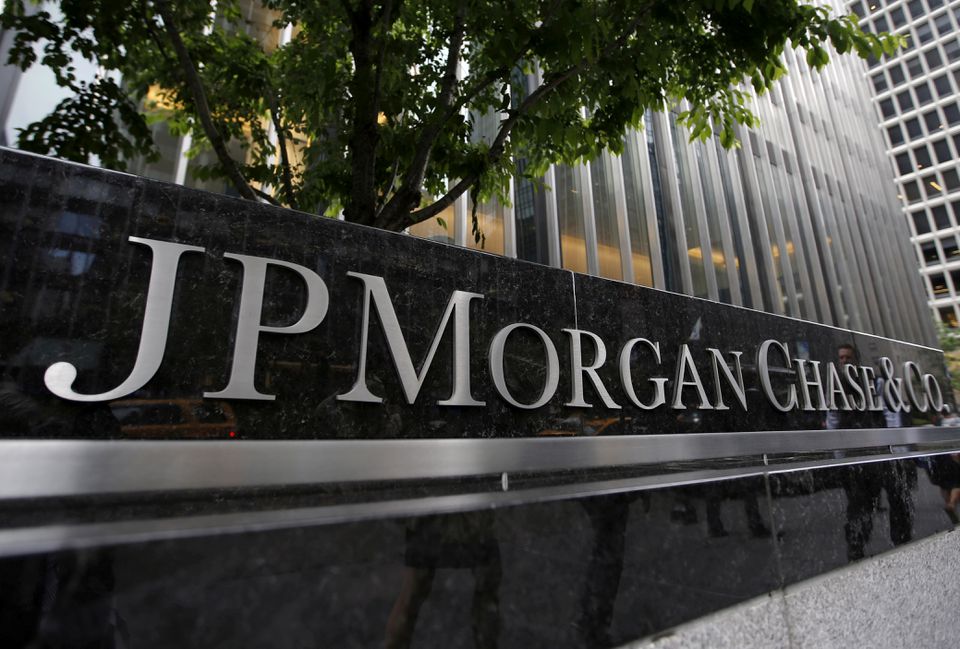J.P. Morgan drops PH to bottom of Asean investment preference list on May 9 polls

A view of the exterior of the JPMorgan Chase & Co corporate headquarters in New York City May 20, 2015. REUTERS/Mike Segar
MANILA, Philippines — American financial services giant J.P. Morgan dropped the Philippines to the bottom of an investment list comprised of its Southeast Asian peers in a new report released during Monday’s presidential elections, which saw Ferdinand “Bongbong” Marcos Jr., the namesake son of the late dictator, headed for a landslide win.
J.P. Morgan did not mention Marcos’ name in the May 9 report that flagged rising risks from high public debt and surging inflation – factors it said would slow economic growth and hurt corporate profits.
Detailing its “new order of preference in Asean”, J.P Morgan ranked the Philippines behind close neighbors Vietnam, Singapore, Thailand and Malaysia.
It also advised investors to lessen their exposure to local stocks given its view to “downgrade the Philippines to underweight.”
“We recommend selling into a possible post-election hope rally,” J.P. Morgan said in the report, which was shared by clients to media outlets on Tuesday morning.
As the market reopened after the elections on May 10, the benchmark Philippine Stock Exchange Index (PSEi) plummeted by as much as 3.14 percent before paring losses to end the session down by 0.58 percent.
The drop erased about P142 billion in market value on Tuesday, valuing the local stock market at P13.75 trillion, PSE data showed.
It came amid a selloff in regional and US equities as investors worried about rising economic recession risks as central banks around the world move to cool red-hot inflation.
“Philippines equities face myriad challenges, including twin deficits, higher inflation, slower government spending in the quarters after the election (transition pain), high public debt, risk of a valuation derating and potential earnings growth disappointment,” J.P. Morgan said.
The report elaborated on its “Philippine Strategy Flash” paper that was released previous day, where it said the country faced macroeconomic challenges after this year regardless of the outcome on May 9.
Here, J.P. Morgan also detailed the various risks and benefits associated with the top two leading presidential candidates.
These were Marcos, who held a commanding lead in pre-election surveys, and vice president Leni Robredo, who led a grassroots, volunteer-based campaign.
J.P. Morgan said investors were concerned about Marcos’ absence of a track record in government service and his stance toward major business families and groups that had dealings with his father’s regime.
It also expected Marcos to continue the programs of the outgoing Duterte administration, especially in terms of infrastructure development and foreign policy.
As of election day, details remained scarce since Marcos has avoided public debates and traditional media interviews where he could provide more details on his plans and platform.
J.P. Morgan said Robredo, on the other hand, was viewed as “more market friendly.”
It cited her training as an economist and lawyer, clean government record and “substantive platform that covers economic recovery, employment, health and education programs.”
“Robredo has communicated that her economic priorities include level playing field for business with zero tolerance to corruption and a predictable regulatory regime, continued push for infrastructure investment, increase in healthcare capacity, revamp of government health insurance, transition to renewable energy, responsible mining among others,” the report added.
ING senior Philippine economist Nicholas Antonio Mapa said they were hoping the incoming administration would shed light on plans to grow the economy while facing inflationary pressures in the postpandemic period.
He also pointed to growing debts on the government’s balance sheet—now equivalent to over 60 percent of gross domestic product from about 40 percent when President Rodrigo Duterte assumed power six years ago.
“The 2022 Philippine economy that [Marcos] is inheriting is not the same as the 2016 Philippine economy that Duterte inherited,” Mapa told the Inquirer.
“There have been reforms in terms of legislation but the macroeconomic story is not as rosy as it was,” he added.
BDO Unibank Inc. chief strategist Jonathan Ravelas expected the Marcos administration to swiftly outline their economic plans, especially when it comes to raising revenues to fund its growth agenda.
Analysts privately mused the Marcos administration could face challenges when it comes to the credibility of its tax collection programs. In 1997, the Court of Appeals convicted Marcos for his failure to file income tax returns from 1982 to 1985.
RELATED STORY
PCGG plans Marcos asset sales this year to generate cash














